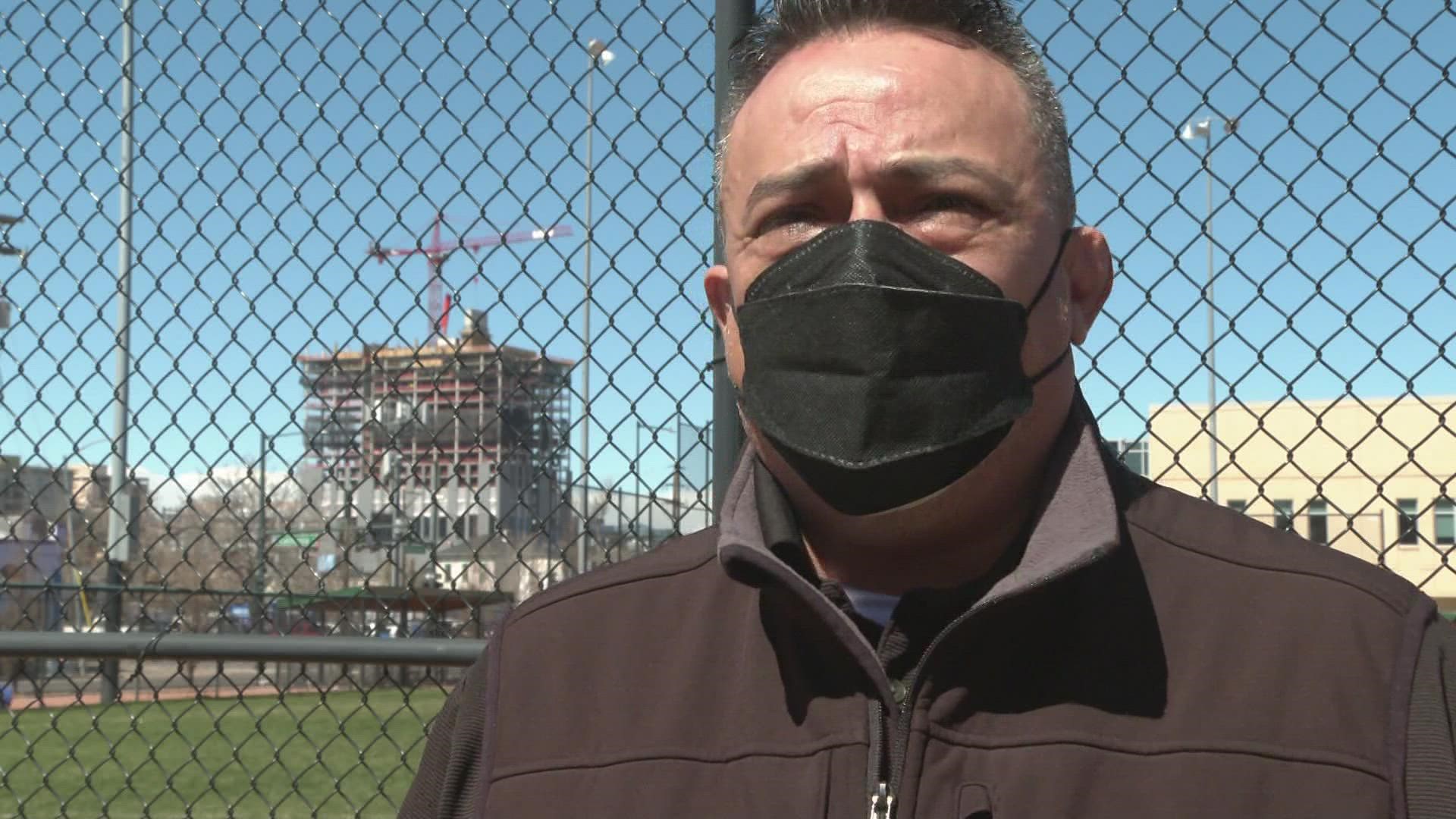DENVER — Even after the federal freeze on evictions ended last year, some Denver residents still find it difficult to pay their rent and stay in their homes.
"I just don't know what to do. I don't know what to do," said 51-year-old Albert Perez, who's facing eviction.
Perez has less than a week to come up with $5,000 or he and his girlfriend will be evicted.
"The pressure that I'm under right now trying to find this amount of money in such a little time is not easy," he said. “I’m going crazy right now as far as not knowing what to do. I’m just not myself.”
Perez said both he and his girlfriend have both been struggling with health issues, making it difficult to work. He caught COVID which then turned into pneumonia. Plus, he said reduced hours at his job have made paying rent more difficult.
"I just feel hopeless right now," said Perez.
He said they qualified for the Emergency Rental Assistance Program (ERAP), which helped them out for three months. They applied again, but he doesn't think his application was ever processed.
"So, I started a court stipulation, but I have yet to speak to anybody in the office," he said. "I can never get the right person."
Zach Neumann, executive director of the COVID-19 Eviction Defense Project helps people like Perez.
"I think it's really hard when you get behind to catch up," said Neumann. "If you aren't able to make your rental payment, odds are you do qualify for emergency rental assistance."
He said Colorado has received nearly $1 billion in rental help from two federal programs (ERA1 and ERA2). But, he said that money could go away in about a year.
"A lot of that has been spent down, but approximately $400 million is remaining," said Neumann. "If we had more affordable housing, if we had more affordable rents, people would be able to pay and you wouldn't need so much support around evictions."
Sarah Buss, Director of Housing Recovery at the Colorado Department of Local Affairs, said the number is closer $100 million remaining.
"Currently, there is over $100 million remaining, but we are still expecting additional disbursements from the U.S. Treasury," said Buss. "This number remains fluid as we navigate temporary emergency rental assistance with the purpose of preventing housing instability, potential eviction, and financial hardships for tenants and landlords across the State of Colorado."
Perez reached out to the COVID-19 Eviction Defense Project today to see if they can help.
"I never had any problems paying my rent before this. Never had any problems and now here I am with an eviction notice on my door," he said.
We reached out to the Colorado Apartment Association (CAA) to ask if they're seeing an increase in eviction filings. Here is a statement from Drew Hamrick, senior vice president and general counsel for the CAA:
"The uptick in March eviction filings don't reflect a dramatic increase; they reflect a return to the pre-pandemic, statewide average, as our rental market recovers from the pandemic and 14-month moratorium. Statewide, the 20-year average range for March evictions is between 3,100 and 4,200. With 3,677 statewide eviction filings, March 2022 is right in the middle of that range. Efforts to frame March eviction rates as anything other than a return to the pre-pandemic norm are misinformed and alarmist."
We requested information on eviction filings from Denver County Courts but have not yet received the data.
The Colorado Department of Local Affairs can also help you find out if you qualify for ERAP funds.
SUGGESTED VIDEOS: Latest from 9NEWS

